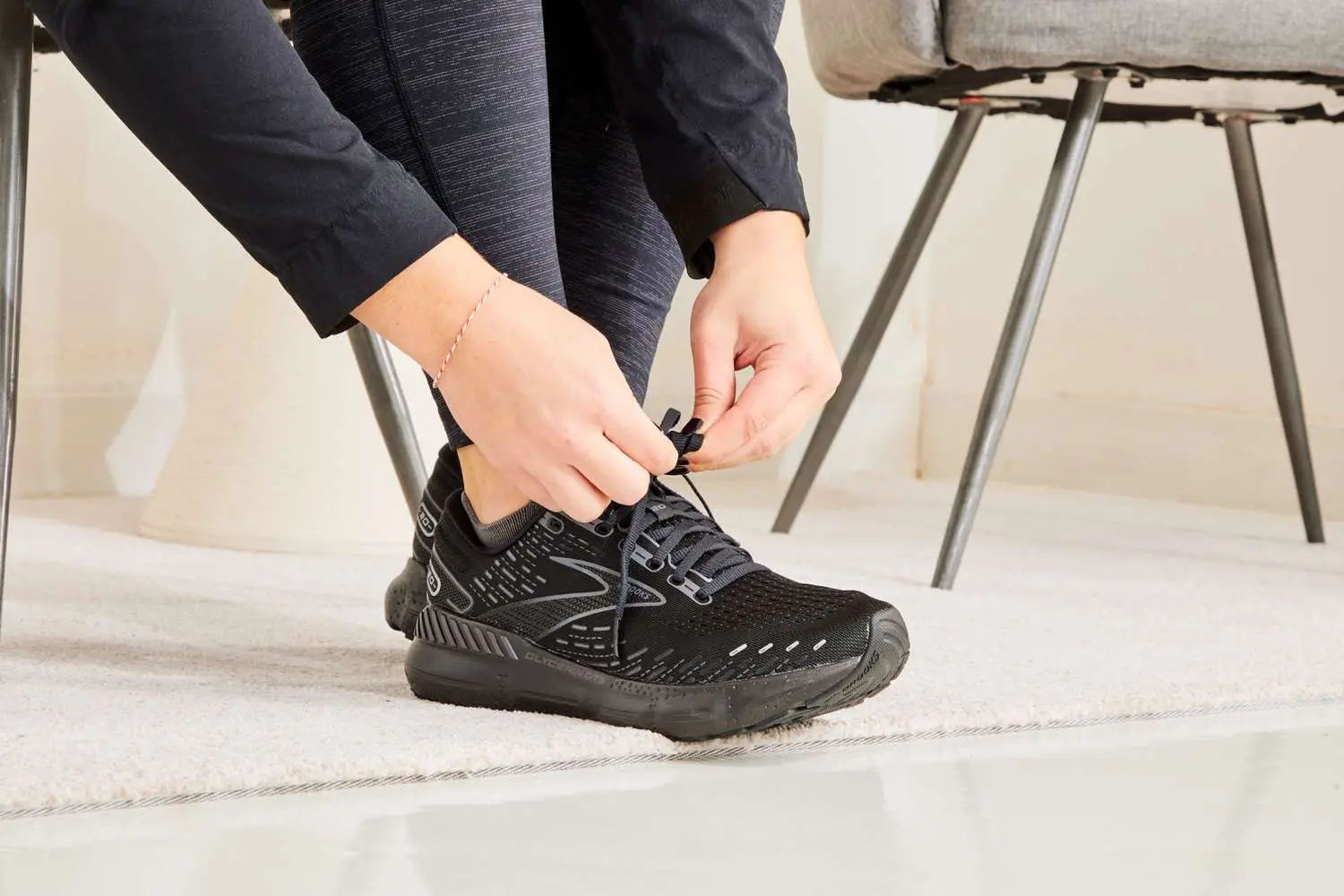If you are a runner who suffers from hip pain, finding the right running shoes is crucial. Not only can the wrong shoes worsen your hip pain, but they can also lead to other injuries and discomfort while running. With so many options in the market, it can be overwhelming to choose the best running shoes for hip pain. Therefore, it is essential to understand the biomechanics of running and how certain features in running shoes can help alleviate hip pain. In this blog post, we will explore the factors to consider when choosing running shoes for hip pain and recommend some of the best options available.
Understanding the Biomechanics of Running and Hip Pain

Before diving into the importance of running shoes in alleviating hip pain, it is essential to understand the biomechanics of running and how it relates to hip pain. Running involves a series of movements that puts a significant amount of stress on our joints, including the hips. As we run, our hips bear the weight of our body and facilitate the movement of our legs. This repetitive motion can lead to inflammation and pain in the hip joint.
Furthermore, some runners have an uneven gait or excessive pronation (rolling inward of the foot) that can cause misalignment and put more pressure on the hips. Over time, this can result in chronic hip pain and even lead to conditions such as bursitis or IT band syndrome. Therefore, it is crucial to find running shoes that not only support our feet but also promote proper alignment to prevent or alleviate hip pain.
How Running Shoes Can Help Reduce Hip Pain

Choosing the right running shoes can significantly impact hip pain by providing support and cushioning to absorb the shock of each step and reduce stress on the hips. Different types of running shoes offer various features that can benefit those suffering from hip pain. For example, stability shoes are designed for runners with overpronation, and they have added support to control the foot’s movement and promote proper alignment. Additionally, cushioned shoes have extra padding to absorb shock and reduce impact on the joints.
Furthermore, many running shoes now come with specialized technologies or features that specifically target areas prone to pain and discomfort, such as the hips. These features can include increased arch support, heel counters, and different types of cushioning materials. Overall, investing in a good pair of running shoes can help alleviate hip pain and improve your overall running experience.
Click here to preview your posts with PRO themes ››
Factors to Consider When Choosing Running Shoes for Hip Pain

When looking for the best running shoes for hip pain, there are several factors to consider. It is essential to keep in mind that every runner’s needs are different, and what works for one person may not work for another. However, there are some general guidelines to follow when choosing running shoes for hip pain.
Arch Support
For runners with flat feet or low arches, it is crucial to look for running shoes with adequate arch support. Flat feet can lead to overpronation, which can put excessive pressure on the hips. Therefore, shoes with built-in arch support can help correct this issue and reduce hip pain. On the other hand, runners with high arches should avoid shoes with too much arch support as it can cause discomfort and even lead to other injuries.
Heel Counter
The heel counter is the back part of the shoe that wraps around the heel. It is essential to choose a running shoe with a sturdy heel counter that provides stability and support. A well-structured heel counter can prevent the heel from moving around excessively, which can cause misalignment and put stress on the hips.
Cushioning
Cushioning is an essential factor to consider when choosing running shoes for hip pain. As mentioned earlier, cushioned shoes can absorb shock and reduce the impact on the joints. However, it is essential to find the right balance of cushioning as too much can cause instability and hinder proper alignment. Runners with hip pain should look for shoes with moderate cushioning that provides enough support without being too soft.
Shoe Type
There are different types of running shoes available, including neutral, stability, and motion control. Each type offers different features and benefits for runners. For those with hip pain, stability or motion control shoes may be more suitable. These types of shoes provide added support and promote proper alignment, making them ideal for runners with overpronation or uneven gait.
Fit and Comfort
One of the most crucial factors when choosing running shoes is finding a comfortable and well-fitting pair. Ill-fitting shoes can lead to blisters, hot spots, and other discomforts, which can worsen hip pain. When trying on running shoes, make sure there is enough space in the toe box, and the shoe feels secure but not too tight. It is also recommended to try on shoes at the end of the day when our feet tend to be slightly swollen.
Click here to preview your posts with PRO themes ››
Common Features of Running Shoes Beneficial for Hip Pain Sufferers
Now that we have discussed the factors to consider when choosing running shoes for hip pain, here are some common features that can benefit those suffering from hip pain:
Arch Support Technology
As mentioned earlier, arch support is crucial for runners with flat feet or low arches. Some running shoes come with specialized technologies such as ASICS’ “Impact Guidance System” or Brooks’ “BioMoGo DNA” that provide targeted arch support and promote proper alignment.
Heel Cushioning
The heel is one of the areas that absorb most of the impact when running. Therefore, many running shoes now come with additional cushioning in the heel to reduce stress and shock to that area. For example, Nike’s “ZoomX Ultra React” technology provides lightweight and responsive cushioning in the heel, making it ideal for runners with hip pain.
Stability Features
Stability features in running shoes can help control excessive pronation and promote proper alignment. These features can include a firm midsole, supportive heel counter, and added arch support. Many stability shoes also come with different types of cushioning for additional comfort and support.
Custom Orthotics
For some runners with severe hip pain or specific foot conditions, custom orthotics may be necessary. These are custom-made shoe inserts that provide extra cushioning and support to address individual needs. Some running shoes have removable insoles, making it easier to insert custom orthotics.
Additional Tips for Runners with Hip Pain
Aside from choosing the right running shoes, there are other things runners with hip pain can do to alleviate discomfort and prevent further injuries. Here are some tips:
Warm-Up and Cool Down
Before and after running, it is essential to warm-up and cool down properly. This helps prepare the muscles and joints for physical activity and reduce the risk of injury. Simple dynamic stretches such as leg swings, lunges, and hip rotations can help loosen up the hips and prevent tightness while running.
Cross Train
Many runners often focus solely on running and neglect other forms of exercise. However, incorporating cross-training such as strength training and yoga can help strengthen the muscles around the hips and improve flexibility. This, in turn, can reduce the strain on the hips while running and prevent injuries.
Listen to Your Body
It is crucial to listen to your body and pay attention to any signs of discomfort or pain while running. If you experience persistent hip pain, it is best to consult with a doctor or physical therapist to determine the cause and appropriate treatment options. Ignoring pain can lead to more severe injuries and hinder your running progress.
Click here to preview your posts with PRO themes ››
Recommended Running Shoes for Runners with Hip Pain
Now that we have discussed the important factors and features to consider when choosing running shoes for hip pain, here are some of the best options recommended by runners and experts:
Brooks Adrenaline GTS 21
The Brooks Adrenaline GTS 21 is a stability running shoe designed to provide support and cushioning for overpronators. It has a GuideRails® support system that helps control excessive movements and promotes proper alignment. The shoe also features DNA LOFT cushioning in the heel for added comfort and shock absorption.
ASICS Gel-Kayano 27
The ASICS Gel-Kayano 27 is a popular choice among runners with hip pain. It offers excellent arch support and stabilization, making it ideal for those with flat feet or low arches. The shoe also has added cushioning in the heel and forefoot for a more comfortable ride.
Hoka One One Clifton 7
The Hoka One One Clifton 7 is known for its lightweight and responsive design. The shoe has a Meta-Rocker technology that promotes a smooth and efficient stride, reducing the stress on the hips. It also has a plush cushioning system that provides comfort and support for long-distance runs.
Conclusion: Choosing the Best Running Shoes for Hip Pain
Hip pain can significantly impact a runner’s performance and overall enjoyment. However, by understanding the biomechanics of running and choosing the right running shoes, one can alleviate discomfort and prevent further injuries. When looking for running shoes for hip pain, it is essential to consider factors such as arch support, heel counter, cushioning, and shoe type. Additionally, incorporating good warm-up and cool-down routines, cross-training, and listening to your body can also help reduce hip pain. Lastly, consult with a doctor or physical therapist if you experience persistent hip pain to determine the cause and appropriate treatment options. With the right pair of running shoes and proper care, runners with hip pain can continue to enjoy their favorite activity without discomfort.


